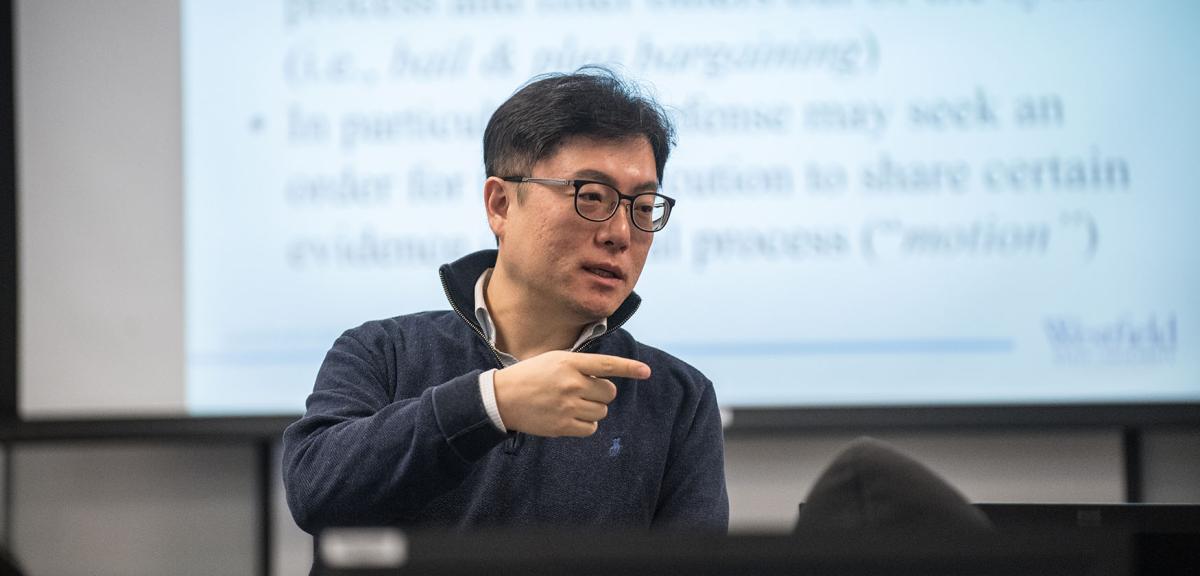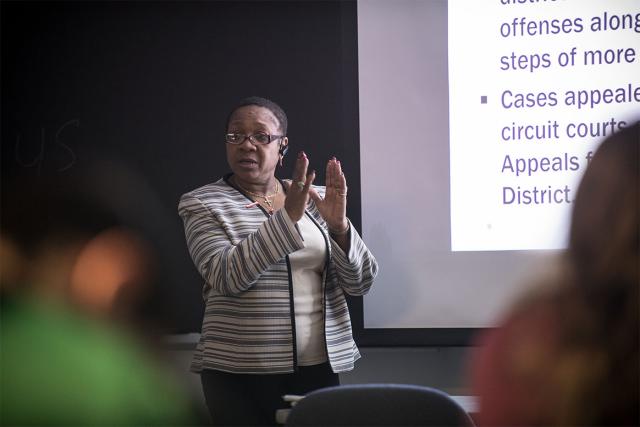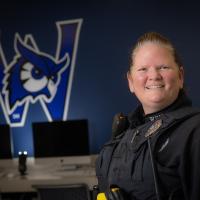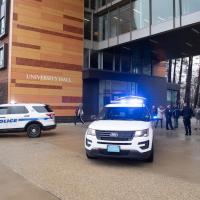
Our criminal justice faculty are committed to educational excellence through personalized attention, interactive engagement, mentorship, and accessibility. The department is led by full-time faculty supported by part-time faculty, offering a diverse range of academic and professional expertise in law enforcement, homeland security, corrections and rehabilitation, religious extremism, courts, criminal law, juvenile justice, gangs, multinational crime, crime mapping, and more.






